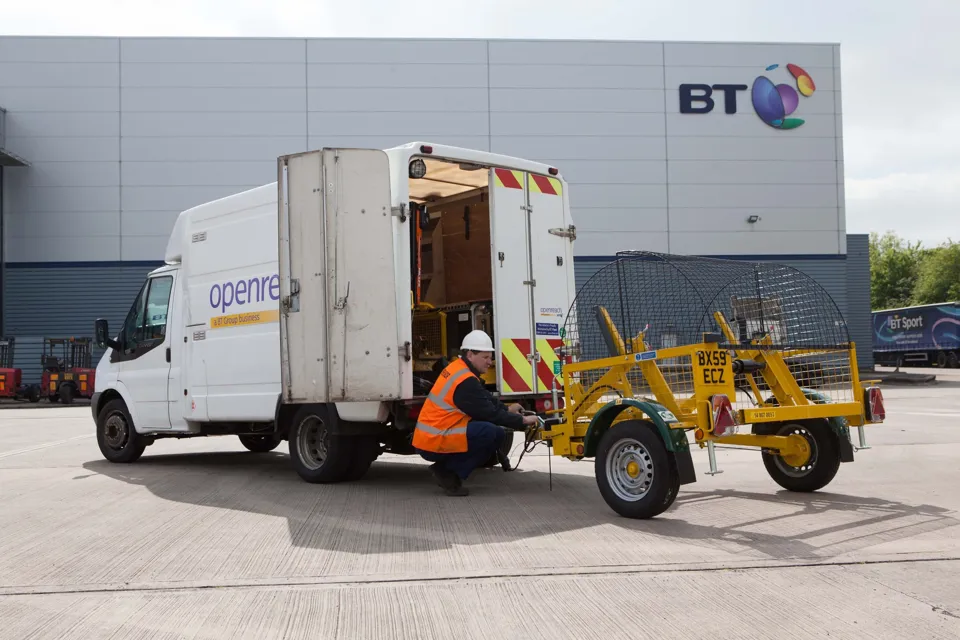Fleet management specialist, BT Fleet, has developed a new range of compact cabling vehicles.
The new vans, developed for Openreach, part of BT Group, will deliver CO2 emissions savings of 65%, a trebling of MPG and an in-life cost reduction of £1,000 per month per vehicle, the company said.
A review and re-design focused on optimising vehicle performance looked at many factors including drivetrain, payload, racking, fuel efficiency, safety and driver ergonomics.
Following this, BT Fleet introduced compact vans based on recycled LCVs rather than traditional models built on a HGV chassis. According to BT Fleet the vans offer operational flexibility with no loss of payload or performance, on top of the CO2 and cost savings.
Duncan Webb, commercial director at BT Fleet, said: “We have a proven track record of developing innovative engineering solutions across all aspects of the business, especially for vans.
"The review has provided us with vehicles that are more cost-effective and efficient, require less servicing and are cheaper to run than traditional models.
"Lead times are also drastically reduced – vehicles can be ready in three months instead of the usual nine. It’s a significant milestone for us and is part of a wider review of our fleet."
BT Fleet has worked closely with Openreach, on developing the vans. The team was able to save six months by selecting the new compact model instead of like-for-like vehicles and 229 vehicles were on the road in 12 weeks.
Dave Edwards, national fleet manager at Openreach, said: “The new compact cabling model has revolutionised our approach and paid dividends. Vehicles now only need servicing annually whereas the previous models were off the road four times a year.
"This means we can keep our engineers on the road and keep the UK connected. The move to LCVs has also increased flexibility as only a standard driving licence is required.
"It’s a great example of BT’s commitment to help all its customers save energy and we haven’t looked back.”

















Login to comment
Comments
No comments have been made yet.